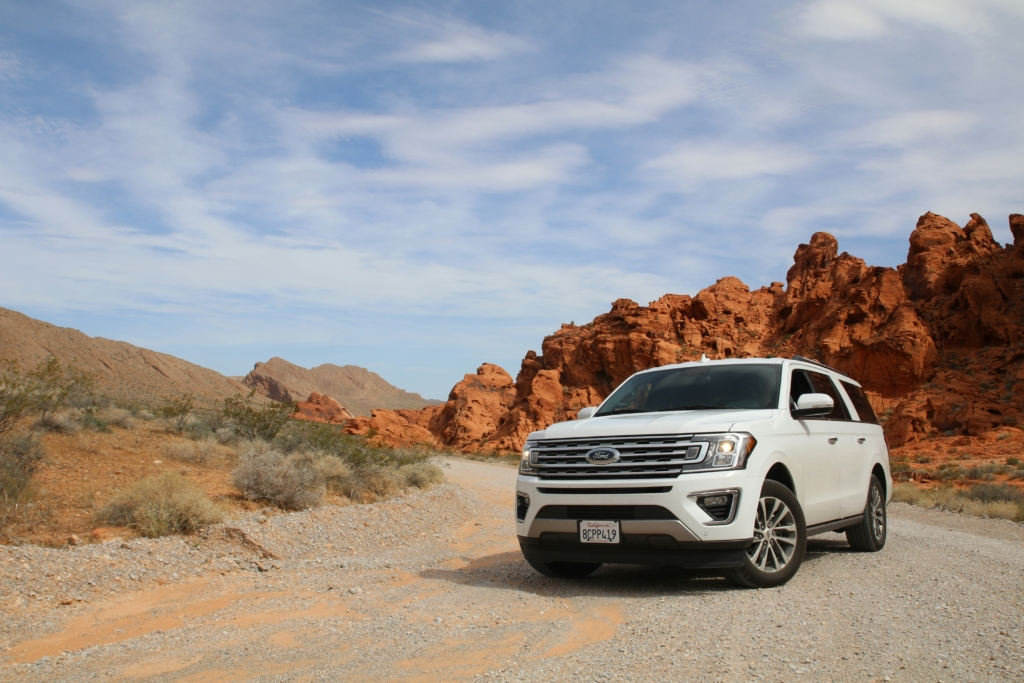How to Get a Car Loan With Bad Credit: What Options Do You Have?

Build strong credit
while you save

Getting a car can make a huge difference in your quality of life, job, and wallet. So it makes sense why there’s an urgency around buying a car even if it’s more difficult because of your credit history.
How To Get A Car Loan With Bad Credit
Car shopping with bad credit is difficult. You go in expecting a sky-high interest rate or an outright denial for the car you really wanted. But it doesn’t have to be that way.
There are concessions you’ll have to make as a borrower with bad credit, but it doesn’t mean that you don’t have options.
Dealer Financing
Not all dealerships are filled with sleazy car salesmen who want to take you for every penny. In fact, car dealerships can sometimes offer financing for people with bad credit or low credit.
Still, it’s not the best idea to go straight to the dealership for financing without exploring other options first. Some bad credit car dealerships may charge super-high interest rates or could be using tactics like yo-yo financing to charge more than the car is worth.
Buy-here-pay-here dealerships are useful for borrowers with bad credit. Reputable dealers that offer this are more likely to approve you if a bank or credit union won’t. These bad credit car loans are also known as guaranteed auto loans.
They use your employment history, income, and proof of residence to qualify you for the car purchase instead of your credit score. Just be careful. Many times these can come with double-digit interest rates and a brand new car is out of the question.
Captive Financing
As of Q2 2020, captive financing made up 31.1% of the market share for car leases and loans. So what is it?
Captive financing is in-house auto financing offered directly through the manufacturer. Since they control the loan and the purchase, they can offer better rates to car buyers with ugly credit history.
There’s no guessing about the rates and payments since those are predetermined most times. And in many cases, the dealership is incentivized to lend to buyers with poor credit history. So it works out for everyone. The only catch — this usually only applies to used car sales.
Bank or Credit Union
Looking for a car loan with bad credit is easier when you check with your local bank or credit union first. Auto financing with the dealership can tack on extra fees or a higher interest rate to compensate for your low credit score.
Even if you don’t qualify for a vehicle loan through traditional banks, credit unions often have lower credit score requirements. Nonprofit credit unions might even have bad credit car finance programs for borrowers with no credit or low credit.
An established relationship can influence their decision to work with you, so check with the financial institutions you’re already using.
Online Lenders
You can get just about anything online these days. That includes finding bad credit car financing. A quick search for “online car loans” and you’re overloaded with results.
There’s no shortage of online lenders who are willing to provide auto financing to people with bad credit. The rates are competitive. The loan application process is easy. And you’re likely to find some familiar banks in the mix.
A reputable online lender can make the car buying process more streamlined. An entirely digital application process is often paired with prequalification tools. That makes it beyond easy for you to find auto lenders who will accept your credit score.
When you prequalify through an online lender, you can see what your potential loan amount and loan terms would be before you get to the car lot. Keep in mind that prequalifying doesn’t mean you’re approved yet. It just helps you narrow down your options before preapproval.
Steps To Take Before Applying For A Car Loan With Bad Credit:
Just because you have a bad credit score doesn’t mean you have to take on all the downsides of bad credit financing. It’s highly recommended to check for prequalification with multiple lenders before you go to the dealership.
- It doesn’t cost anything
- You can do as many as you’d like because it’s a soft pull on your credit
- It can save you some denials if buying a car can’t wait for fixing credit issues
There are several other steps that can put you in a better position. With some research and number crunching, you might not have to apply for a car loan with poor credit.
We’ll go over what you can do to improve your shot at getting an auto loan. Most of them are going to involve boosting your credit. Some steps might be easier than others. It all depends on how quickly you want to get your car loan and the terms you want to walk away with.
Check Your Credit Score and Try Improving It
You might not have the best credit, but you need to know the exact score before you go to the dealership.
Don’t play the guessing game when you sit down with the finance manager to see what you qualify for. Knowing your score with each credit bureau helps you negotiate based on what’s typical for your credit range.
You’ll fall in one of five credit scoring ranges from deep subprime to superprime as seen in the table below.
The lower your credit score, the higher your APR is. The higher your interest rate, the bigger your monthly car payment is.
Average Auto Loan Rates By Credit Score
$25,000 car, 48-month loan term
| Credit score | Average APR, New Car | Average APR, Used Car |
| 720-850 | 3.72% | 3.91% |
| 690-719 | 5.02% | 5.18% |
| 660-689 | 7.38% | 7.03% |
| 620-659 | 10.15% | 8.56% |
| 590-619 | 14.65% | 15.38% |
| 500-589 | 16.11% | 15.02% |
Source: MyFico.com
So why not try improving your credit score instead? The largest factor in your credit score is your payment history, making up 35% of your overall credit rating. Taking action towards a better credit score means making all of your monthly payments on time.
Just getting started building credit? You probably don’t have many accounts yet. Lenders see that as a thin credit profile and it makes them wary about trusting you to repay the loan.
You could boost your credit by being added as an authorized user on a credit card with someone you trust. The extra credit line with on-time payments can raise your credit score.
Another way to diversify your credit mix and build positive payment history is getting a CreditStrong Credit Builder Loan. With an easy application process and access to your FICO score, you can start building credit quickly.
CreditStrong account holders with on-time payments raise their credit scores by an average of 70 points in just one year. Taking you from Subprime to Prime in no time!
Correct past credit problems by reviewing your report and disputing incorrect information. That can boost your score too!

Check Your Debt-To-Income Ratio
Your Debt-to-Income ratio or DTI is another piece that could stand in the way of your car purchase. Auto lenders look at more than just your credit score. They want to know that other payment obligations won’t get in the way of repaying your car loan.
Your DTI is how much of your income goes towards monthly debt payments and how much income you have left over. It includes your monthly housing costs, credit card bills, and other debt obligations
This is closely related to your credit utilization rate which makes up 30% of your credit score. If your DTI is too high, the lender might decline the financing even if you meet their minimum credit score.
The easiest way to fix it? Pay down some of your revolving debts. Pay off or pay down your credit cards, or other lines of credit to free up some cash and lower your utilization rate.
By paying down your debts, you lower your credit utilization rate. Typically a healthy credit utilization is 30% or under. It shows lenders that you use your credit responsibly.
Know How Much You Can Afford
Once you know your credit score and your DTI, you can reverse engineer how much of a car loan you can comfortably afford. While you obviously have to be able to make the monthly payments, don’t head to the dealership with that in mind. Here’s why—
A skilled auto finance department will make any monthly payment you throw out work for you. How do they do it? By stretching out the loan term. Sometimes this can be up to 84 months.
This means you’re paying way more in interest and your car payments won’t outpace depreciation. You have to focus on the overall cost of the car.
It’s not just the monthly payment you have to worry about. You still have to consider the other costs that come with car ownership:
- Gas or fuel
- Parking
- Car insurance
- Maintenance costs
If you’re not prepared to handle those expenses alongside the monthly payments, you might want to rework your budget. You could also look at a less expensive car or work on improving your credit to pay less in interest.
Save For A Down Payment
Bringing a down payment to the table gives you more bargaining power and can lower your monthly payments. If you have a poor credit score, this could turn the tides for you. Experts suggest doing a 20% downpayment, but not many people can do that.
It doesn’t have to be thousands of dollars to make a difference.
A couple of hundred dollar bills can lower your upfront costs and decrease the loan-to-value (LTV) ratio. That has the added benefit of saving you money in interest. When a lender reviews your loan application, a lower LTV from a downpayment might qualify you for a lower interest rate.
Get Preapproved for a Loan
Earlier we mentioned getting a pre-qualification with multiple different lenders. After narrowing down your options to the financing companies that pre-qualified you, you might have a few in mind that you want to get pre-approvals with.
Unlike the pre-qualification process, getting pre-approved for a car loan gives you leverage at the dealership. It’s a preapproved loan offer with specifics on your loan terms.
It’s a hard inquiry on your credit report, but it gives you a specific amount you can borrow. Car salesmen beware because you’re now considered a cash buyer at the dealership.
Go you!
Getting preapproved gives you a more accurate idea of what you can afford and what your interest rate will be. Make sure to shop around, but don’t be scared of the extra inquiries.
FICO allows all hard inquiries of the same type to be counted as one inquiry on your credit report if they’re all done within a 45 day period. Vantage score offers the same benefit if all inquiries of the same type are done within 14 days.
FAQs
What Is the Lowest Score You Can Get a Car Loan With?
In a 2020 study by Experian, auto-financing to borrowers with scores in the deep subprime range (300-500) only made up 2.98% of all the loans and leases approved. With lending requirements becoming more strict due to the pandemic, that’s likely to drop even more.
Some lenders are approving loans for car buyers with poor credit, but they’re few and far between. You also have to think about what kind of interest rate they’re paying on those loans.
Is it affordable? Probably not.
Is it going to be paid off in five years or less? The answer is still no.
Aim for the best credit score you can manage when preparing to buy a car to give yourself the best chance at approval. If you are left with no choice but to get a bad credit auto loan, look for the opportunity to refinance later.
The high-interest payments might be a struggle to deal with but if you make them on time, it could boost your credit report enough to apply for a refinance at a lower interest rate.
Can I Get a Car Loan with a Credit Score of 500?
You can get a car loan without good credit. It’s possible. But it’s not the best situation to be in.
You can look for subprime lenders who will accommodate your credit score, but they’ll likely have additional fees and much higher interest rates for your car purchase.
Bad credit auto financing can be hard to find but it’s out there. You might stand a better chance by finding a trustworthy cosigner to help you qualify for the loan. Just be sure to make your payments on time so their credit isn’t negatively affected.
What FICO Score Do Car Dealers Use?
Car dealers use a wide range of FICO scores and it depends on which financing company they’re working with. The most commonly used scoring model for car dealers is the FICO Auto Score 8. In some cases, they may use the FICO Auto Scores 2, 4, and 5 to make a decision.
What Is a Good Credit Score to Buy a Car?
A good credit score is typically in the range of 670-739. You would be able to walk into most traditional banks and dealerships and get their best deals on car loans with that score.
That doesn’t mean you won’t have financing options if your score is below that. Last year, there were 19.20% of subprime car loans issued. Clearly, it’s not stopping people from getting the wheels they want.
As we mentioned before, the better your credit score is, the better loan terms you’ll get.
CreditStrong helps improve your credit and can positively impact the factors that determine 90% of your FICO score.
